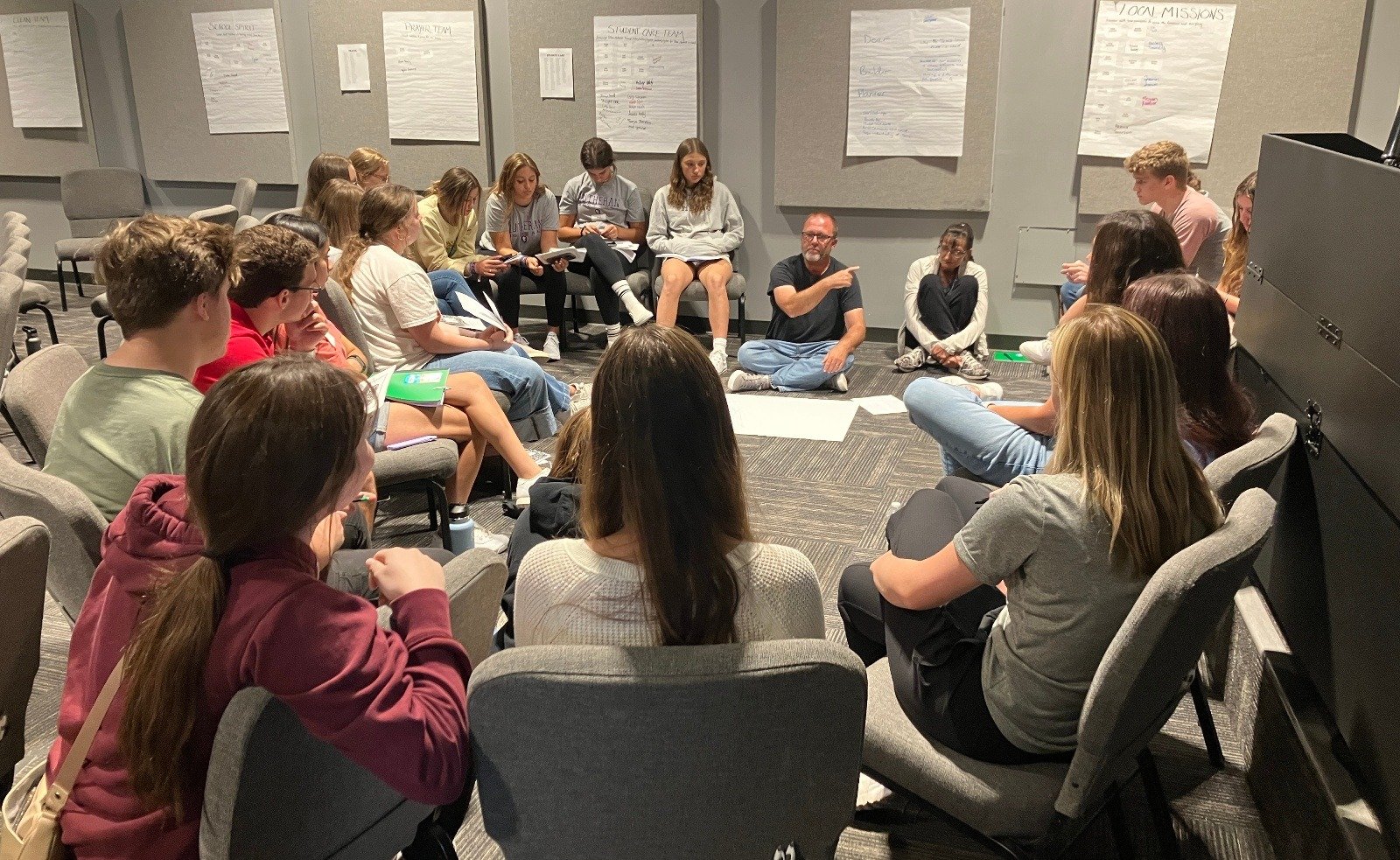What Colleges Look for in Student Academic Profiles
What do colleges look for in a student's academic profile? 3 tips on what students can do now to best prepare to get into the college of their choice.
BY Hannah Buchholz
Applying to colleges and universities can feel like a full time job. One word that comes to mind to describe the experience: overwhelming. Does that ring true for anyone else?
We have good news for LuHi juniors and seniors. You do not have to do it alone! In fact, the LuHi team of Academic and College Advisors help you right from the start of your freshmen year. They know that getting into your top college of choice isn't a checkbox exercise. It's a chance to carve out your unique identity and distinguish yourself in a crowded admissions landscape. It's about telling your story.
Let's look at three key elements that can elevate your academic profile.

1) Grades Matter
Grades are not just academic indicators; they tell a story of your perseverance, discipline, and intellectual hunger. Focus on grades starting day 1. If you wait until junior year to consider your GPA, you will have done your future self a disservice.
Achieving an impressive GPA tells college admissions teams that:
- you've gained mastery over subject matter
- you can problem-solve and overcome challenging assignments
- you can adapt to various learning environments
- you value the pursuit of excellence
Admissions officers see grades as a window into your work ethic and other traits that will contribute to their institute's academic community.
GPA matters and and weighted could be better depending on the college you're looking at. this is espeically important for scholarship purposes.
2) The Power of Standardized Tests
The Test Preferred vs Test Required Debate
If you are a post-2020 college applicant, you are familiar with the will-they, won't-they standardized testing debate. Will colleges want an ACT or SAT score? Or won't they? Are they going to change their mind again next year?
In 2021, many articles were written speculating that the days of colleges requiring an ACT or SAT were over. And some schools, like Columbia, have decided to make testing optional permanently. Other big-name schools like MIT and Georgetown have reinstated testing requirements.
The trend is certainly moving back to the ACT or SAT being a required part of the admissions process for most universities.
Our advice remains the same
The best way to know what you need regarding standardized testing is to go straight to the source. Visit the specific colleges' websites that you are interested in. Look at their admissions requirements. Chat with your guidance counselor. Make the decision from there.
Unsure what colleges to research? We recommend making a list of 5 to 12 top schools of your choice.
Our guidance team also reminds students that many scholarships look for ACT/SAT scores, so having them in your back pocket is a good idea, just in case.
At LuHi, students take ACT and SAT practice tests during their freshmen through junior years. We also partner with Magoosh for ACT/SAT testing prep for juniors. Taking standardized tests keeps options open. It doesn't hurt to take the tests even if you don't end up going to a 4-year university (or college at all, for that matter).
3) Early Preparation for Long-Term Success
What is the story of your transcript? What is the story of your resume?
The goal of every application you submit is to tell your academic and personal story. Your unique story helps sell your college profile. And that starts freshmen year.
Freshmen year is not just a stepping stone; it's the foundation upon which your college profile is built. As we mentioned earlier, grades matter starting day 1 of high school. But so do the clubs you join, sports you play, performances you participate in, and any other extracurriculars you do.
But where to start?
Work with your guidance counselor to choose courses that match your college and career goals. Not sure where to start? Don't panic. Being unsure of what you want to do after high school is a normal experience. Our advice is to explore as many options as possible during high school. Let your academic advisor know what interests you; they will help you create a path that fits your needs.
A great thing about high school is there is no right or wrong when choosing elective classes or extracurriculars. If you end up not enjoying a subject, view it as something you can cross off the list of things you want to do in the future. Eliminating interests can be just as helpful as finding your passion.
During the 1st semester of a LuHi student's sophomore year, their Academic Advisor will set them up with a YouScience aptitude test and then walk them through the results. We do this to help students better understand their God-given abilities.
Showing leadership growth
Mindfully choosing classes and extracurriculars will set you up for success when you hit junior year. Junior year is when the rubber meets the road in the college application world. Although you will officially start applying for college in your senior year, junior year is the time to get your ducks in a row.
Use your Naviance platform to begin to craft your college admissions profile. On Naviance, you can log your service hours, gather strong teacher recommendations, and build a profile that shows how you are a leader at school. All this will help set you apart as a candidate committed to personal and academic growth.
College admissions counselors want to see that you are now leading the clubs or activities you joined your freshmen year.
4) Build Relationships to get the Best Recommendation Letters
Another skill to start building right away freshmen year: building positive relationships with your teachers. When you start applying to colleges and for scholarships, letters of recommendation will be a large part of the equation.
Many students ask for recommendation letters from teachers, school administrators, club leaders, or outside sources like youth pastors. The better the adult writing your letter knows you, the better they will be able to help tell your unique story.
To build a positive relationship, don't just greet your teachers at the classroom door each day (although that's not a bad place to start). Let them get to know you by seeing your personality and understanding your learning style.
Teachers have a way of picking up on their student's God-given talents and gifts. Let them in by talking with them, participating in class, and giving your best efforts in their class. They'll be happy to write you a positive recommendation letter and you won't be left scrambling to find adults who can authentically praise your efforts and abilities.
Conclusion
While the journey to college is exciting (daunting?), remember you are not alone. What you do after high school is not a one-size-fits-all concept. LuHi's team of Academic Advisors is dedicated to helping every student find the best post-high school path for them.
If you are a student with a 4-year university in your sights, we are here to help you reach your college readiness goals.
Crafting an unforgettable academic profile is meant to tell your story. But in short, most every college will look for:
- a high GPA
- strong standardized test scores
- a thought-provoking, personal essay
- a history of volunteer service and community involvement
- positive recommendation letters
All these elements help tell your story to college admissions teams.
By investing in your academic profile, you increase your chances of getting into to the school of your choice. More importantly, you build lifelong skills and set the stage to be a lifelong learner. The effort you put into your high school years will not be wasted.
To learn more about how we help students with their college readiness, click here.
Listen to our podcast episode about helping students navigate their options post-high school here.
This post was originally posted in 2018. It has been updated for accuracy in 2025.




